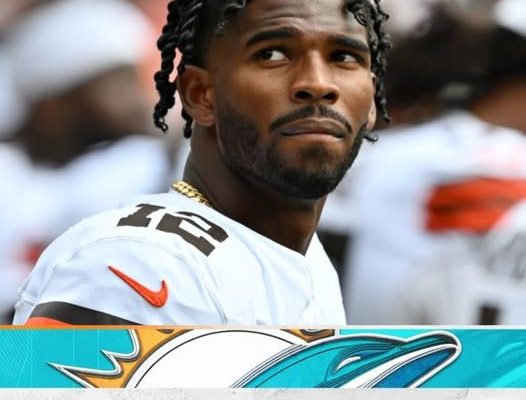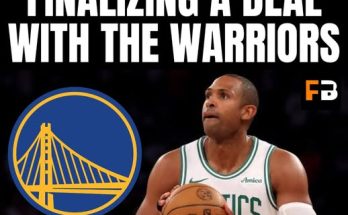The 2025 season opener for the Miami Dolphins quickly became more than just a disappointing loss; it has turned into a full-blown quarterback crisis that threatens to redefine the trajectory of their season. After Tua Tagovailoa’s subpar performance against the Colts, questions about the Dolphins’ quarterback depth, offensive strategy, and overall team chemistry have dominated headlines. The shutout loss was particularly alarming because it highlighted both execution issues on the field and growing frustration off it, most visibly with star receiver Tyreek Hill. Hill, who has been the focal point of the Dolphins’ offense in recent years, was seen animatedly gesturing and arguing on the sidelines, signaling that the loss may have shaken not just the players but the locker room culture itself. Observers noted that such displays of frustration from a veteran leader often indicate deeper issues within the team’s dynamic and can sometimes catalyze mid-season changes.
As the dust settles, trade rumors have already begun to swirl, with one name dominating the conversation: Shedeur Sanders. Currently on the Cleveland Browns’ bench behind Joe Flacco, Sanders has been quietly developing as a potential NFL starter, though he has yet to see meaningful game action. Analysts point to his collegiate track record and athletic versatility as signs that he could immediately inject energy and competition into the Dolphins’ quarterback room. Miami’s interest in Sanders isn’t without precedent; during the 2025 NFL Draft, discussions reportedly took place between Dolphins executives and Sanders’ camp, though a formal offer was never pursued. Now, in the wake of Tagovailoa’s struggles, Sanders is emerging as a potential lifeline for a team suddenly grappling with a crisis at the most critical position in football.
The notion of trading for Sanders raises complex questions about team strategy, salary cap management, and long-term planning. Bringing in a young quarterback mid-season is rarely a guaranteed solution. While Sanders has potential, he is untested in a full-speed NFL environment, and the Dolphins would be taking a risk by moving away from a starter like Tagovailoa, who has had high moments throughout his career. Yet, for some executives and fans, the gamble may feel necessary. The performance against the Colts starkly highlighted a lack of offensive cohesion, which could be attributed to a combination of poor quarterback play, inconsistent offensive line protection, and limited creativity in play-calling.
Meanwhile, Tua Tagovailoa faces an uphill battle to regain both his form and the confidence of teammates and fans. Analysts have noted that even the best quarterbacks can endure a slump, and history is filled with examples of players rebounding from early-season struggles. Tagovailoa himself has expressed a commitment to improving, acknowledging the mistakes made in the first game and pledging to better prepare for upcoming opponents. Yet, the visibility of Tyreek Hill’s frustration has complicated the narrative. A star wide receiver openly showing discontent can destabilize the locker room and put additional pressure on coaches to consider roster moves or strategic shakeups.
The broader NFL context cannot be ignored. The Dolphins are competing in a conference loaded with elite quarterbacks, and falling behind early in the season could have significant playoff implications. If the Dolphins fail to find answers at quarterback, they risk not only a losing record but also diminishing fan engagement and front-office scrutiny. In this environment, rumors about Shedeur Sanders provide both hope and distraction. Should Miami pursue a trade, it would signal a willingness to pivot quickly, yet it could also raise questions about the organization’s confidence in Tagovailoa and their long-term vision.
Adding to the speculation is the fact that the Browns have appeared hesitant to give Sanders meaningful playing time behind Flacco, a quarterback nearing the end of his career. This dynamic has made Sanders accessible, at least in theory, for teams willing to negotiate a trade. For Miami, the calculus would involve weighing the immediate benefits of acquiring a young, potentially game-changing quarterback against the risk of destabilizing their existing roster. Executives would need to consider contract implications, draft capital, and the message it sends to other players in the locker room.
Media coverage has only intensified the pressure. Sports analysts, social media commentators, and former players have all weighed in, offering opinions that range from “Miami must act immediately” to “Patience with Tagovailoa is the smarter long-term strategy.” The debate has fueled passionate discussions among fans, many of whom are divided over whether Sanders represents a savior figure or an unproven gamble. Some supporters argue that fresh talent could revitalize the offense, especially if Sanders’ mobility and field vision allow for a more dynamic playstyle that the current Dolphins roster struggles to maximize. Others caution against mid-season upheaval, citing the risks of changing quarterbacks without sufficient preparation and the potential morale issues such a move could create.
As the Dolphins evaluate their options, internal dynamics will be crucial. Coaches and executives must navigate the balance between maintaining team cohesion and responding to underperformance. Mike McDaniel, known for his offensive acumen and player-friendly coaching style, will likely be central in any decision-making process. Whether he can guide Tagovailoa back to form or sees Sanders as a necessary infusion of talent could shape the remainder of the season. The Dolphins’ management is facing a high-stakes decision, one that could define the franchise’s trajectory for years to come.
Complicating matters further is the emerging narrative around Tyreek Hill. His visible frustration may be emblematic of broader concerns within the team. Hill, who is often a barometer of the offense’s health, has historically thrived under quarterbacks who can consistently deliver accurate passes and quick decision-making. If the Dolphins pursue a trade for Sanders, it could provide Hill with a rejuvenated connection, potentially unlocking a more explosive offensive attack. Conversely, the move could exacerbate tensions if Tagovailoa perceives the trade as a lack of confidence in his abilities, further complicating locker room dynamics.



